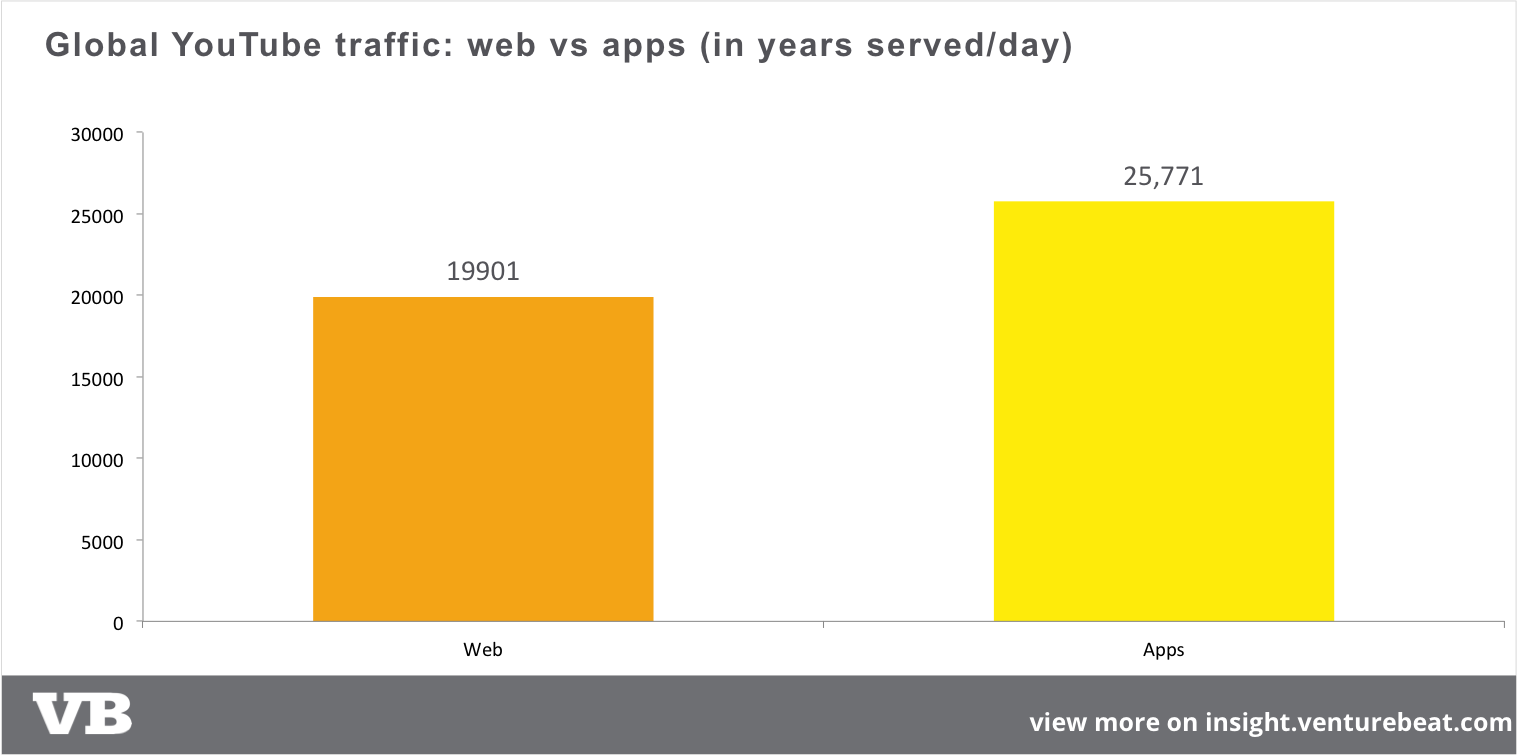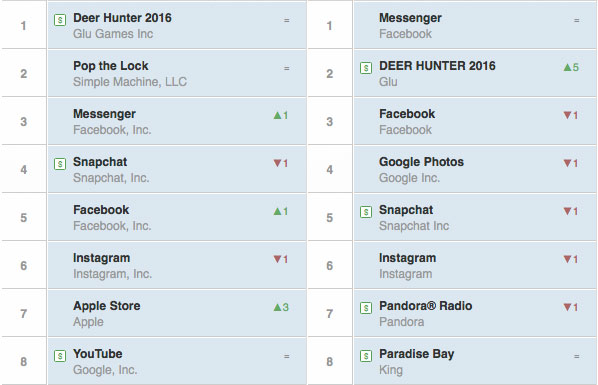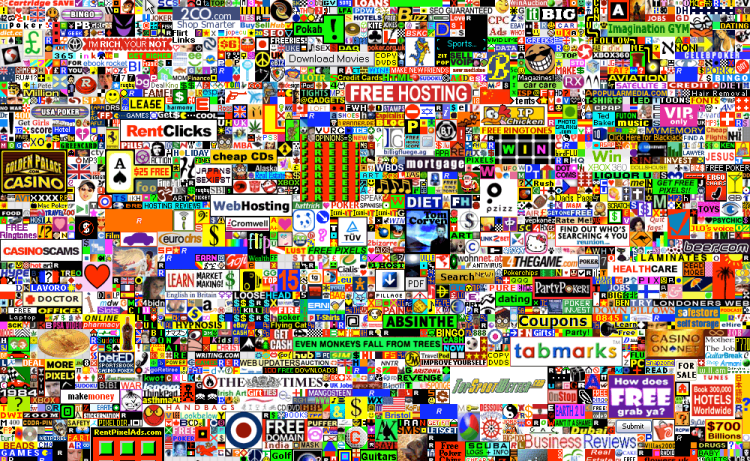Everyone is up in arms.
Ad blockers abound, and web-based journalism is suffering a revenue squeeze. Journalists say the sky is falling, and the Web is dying. Developers are rushing in to save us from ads, then regretting what they have done. Our own Dylan Tweney recently wrote a great summary of the problem, the challenges, the responses, and the despair, concluding that it’s the end of the line for the ad-supported Web.
So, yeah, there’s a lot of despair.
 Because first it was newspapers, and now the medium holding the blood-stained knife, the Web, is being slain by its own children — endless user-generated monetizable content and the ads that have proliferated — in a sort of modernized Oedipus myth (minus the marrying your mother part). The end, at last, of journalism, that noble bastion of purity and freedom and democracy and free shit from obliging vendors, is at hand.
Because first it was newspapers, and now the medium holding the blood-stained knife, the Web, is being slain by its own children — endless user-generated monetizable content and the ads that have proliferated — in a sort of modernized Oedipus myth (minus the marrying your mother part). The end, at last, of journalism, that noble bastion of purity and freedom and democracy and free shit from obliging vendors, is at hand.
Sic transit gloria mundi.
Except, everyone’s forgotten what started this ad blocking debate. And what started it is the entire key to why it hardly matters.
Apple re-ignited this issue last week with the release of iOS 9, which offers developers the ability to publish, and grants everyone else the ability to block ads. Let me reiterate that. Apple launched a new mobile operating system which is designed to cut off Google’s oxygen supply … the ads that fuel its endless innovation in mobile, in search, in cars, in digital video, in … well, everything else that Google, sorry, Alphabet, is doing.
There’s only one important word in that paragraph, and it’s “mobile.”
Because the change that’s happening is not ad blockers. Ad blockers are a minor, tiny, buzzing insect that virtually no one but geeks/nerds/techies (admittedly, a growing population these days) and journalists (nope, not a growing population) notices. Ad blockers are used by about five percent of the U.S. browsing population, and why you hear about it so much is that tech news sites (like this one) see proportionately more ad blocker use because (shocker) geeks know the tech exists, care about it, and install it. So for VB it’s between 20 and 40 percent.
But even so, it still really doesn’t matter all that much. Because people are voting with their feet — the most important way anyone ever votes — and their fingers.
And they’re choosing mobile over the Web. And mobile is an entirely different animal.
Every single day, humans on this planet spend well over 150,000 aggregated years reading, watching, clicking, liking, and commenting on digital content with the two global superpowers of digital content: Facebook and Google’s YouTube. Most of that on mobile.

At least 56 percent of YouTube’s video consumption is mobile. That’s kind of staggering, because people tend to view YouTube for a very long time — 63 percent of YouTube sessions are over 10 minutes, and one-hour YouTube marathons are not at all uncommon, particularly among youth. Phones may be light, but anything gets heavy when you have to hold it for an hour.
We know that Facebook loves the new small screen: a staggering 73 percent of its revenue is mobile (remember, this is the company that “couldn’t do mobile” just a few short years ago). And it really hasn’t even starting trying, in any serious way, to monetize the massive WhatsApp and Instagram platforms that it acquired partly to assuage concerns that it wasn’t mobile enough or young enough.

Above: Android Apps
When you’re talking mobile, you’re talking apps — at least in the U.S.
Almost 90 percent of our time is spent in apps, where we connect with friends, play games, buy stuff, get work done, and … read news. We discover that news on Facebook, via Twitter, on Flipboard, or through other apps, and we read, and increasingly, watch it in the palm of our hand. We’ve downloaded 350 billion apps and, as a consequence, we now spend more time watching our small screens than we do the big screens hanging on our living room walls.
This change is far more significant and much further-reaching than any ad blocker controversy. And it has a number of implications.
Chief among them? User experience bloody well matters.
Most of us might put up with pop-ups and interstitials and blinking, crowding, jamming ads on the Web — though each of them has its cost in user engagement, customer satisfaction, and reader retention — but we have much less patience on the smaller screens in our hands. On the mobile Web, we’re already all ad blockers, whether or not we downloaded a new app for Apple’s iOS 9.
Why?
Simple: the law of mobile is that good apps win. Good apps win, which is another way of saying good experience wins. Check out App Annie’s top apps for downloads (iOS is on the left, Google Play is on the right):

How many crappy, ad-filled, horrible user experience apps do you see there? Possibly zero. I don’t know for sure — I haven’t played Deer Hunter or Pop the Lock — but I think it’s zero.
In spite of that fact, somehow game publishers have figured out how to make money on mobile, with some games taking in multiple millions every single day, mostly from in-app purchases. And somehow Facebook, which is ad-supported but hardly a horrible pop-up-filled experience, has figured out how to make money on mobile. (Apple has too, although that’s a completely different story.) The New York Times has made big strides in finding online revenue, recently hitting one million digital subscribers. Media companies in the streaming music and movie spaces are figuring it out. Personal success apps in the fitness and weight loss spaces have figured it out. And major league baseball is figuring it out.
So why can’t journalism?
 The impending death of the ad-supported Web (which, by the way, much like newspapers themselves, is far from dead) is not the story, nor does it sound journalism’s death knell, which has probably been sounded far more times by nervous nattering nellies than there are actual journalists currently working in the world. It may indeed be the death knell for certain forms of journalism. And it may also be the death knell for certain mediums in which journalism has been published.
The impending death of the ad-supported Web (which, by the way, much like newspapers themselves, is far from dead) is not the story, nor does it sound journalism’s death knell, which has probably been sounded far more times by nervous nattering nellies than there are actual journalists currently working in the world. It may indeed be the death knell for certain forms of journalism. And it may also be the death knell for certain mediums in which journalism has been published.
It certainly signals the death knell for publications that don’t want to adapt, and can’t adapt at internet, sorry, mobile speed.
So let’s innovate. And I mean more than implementing anti-ad blockers.
If good apps win, let’s make good apps. If good user experience beats crappy user experience, let’s create great user experience.
This doesn’t mean all journalistic outlets will make their own app. I don’t expect you to carry around apps from each of VB, TechCrunch, Verge, Re/code, Ars Technica, Business Insider, Quartz, Wired, and Gizmodo on your phone, check them regularly, and engage with each one. Mobile’s not like that — the vast majority of us pretty much use five to eight apps regularly, and a few others episodically.
So the new reality may have to be mediated.
 Maybe it’s Facebook’s instant articles. Maybe it’s Flipboard. Maybe it’s a tech news consortium. Maybe it’s an RSS reader on mobile, like Feedly. Maybe it’s an aggregator, like Techmeme. Maybe it’s Twitter. Maybe something from Google. And maybe, in few cases, there’s enough value prop that you actually want, no need, the full-on native app from the two or three publishers you most care about … and, like the core audience of any site, which is maybe 10-30 percent of the total audience, live in it.
Maybe it’s Facebook’s instant articles. Maybe it’s Flipboard. Maybe it’s a tech news consortium. Maybe it’s an RSS reader on mobile, like Feedly. Maybe it’s an aggregator, like Techmeme. Maybe it’s Twitter. Maybe something from Google. And maybe, in few cases, there’s enough value prop that you actually want, no need, the full-on native app from the two or three publishers you most care about … and, like the core audience of any site, which is maybe 10-30 percent of the total audience, live in it.
Most likely, it’s all of the above, as different solutions for different people. One of the things the mobile world has done is disaggregate certain things (buy direct from a brand, no retailer needed!) and aggregate others (transportation supply and demand). News is no different. It too, will be both disaggregated and aggregated, mixed and mashed.
What we do know, however, is that people want news. They read news, they share news, they comment on news. All we have to do is figure out how to extract value for the provided value … in the new reality.
Let’s get started.


